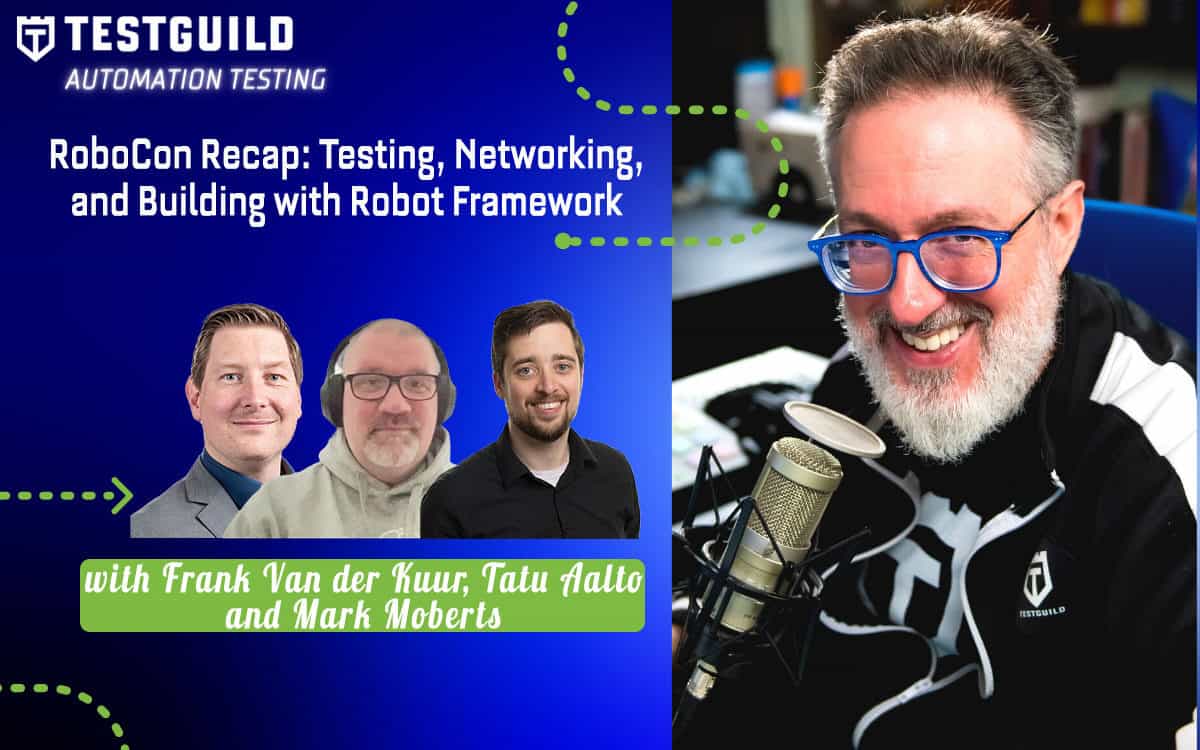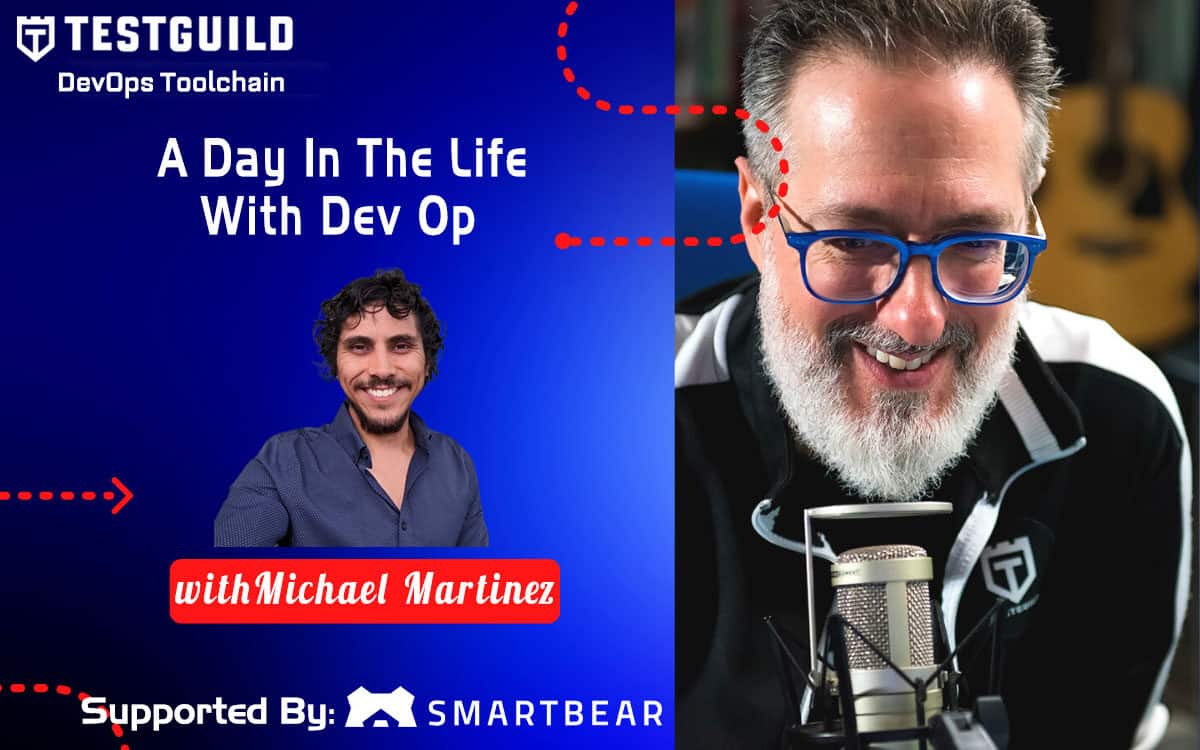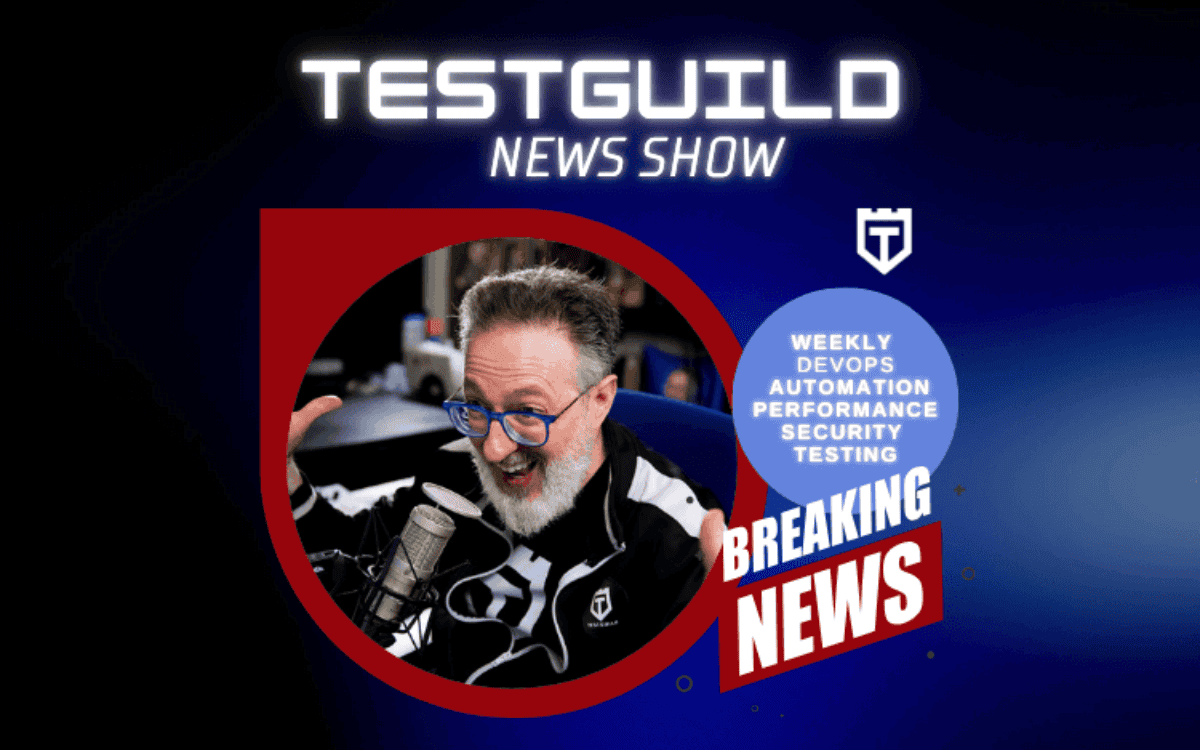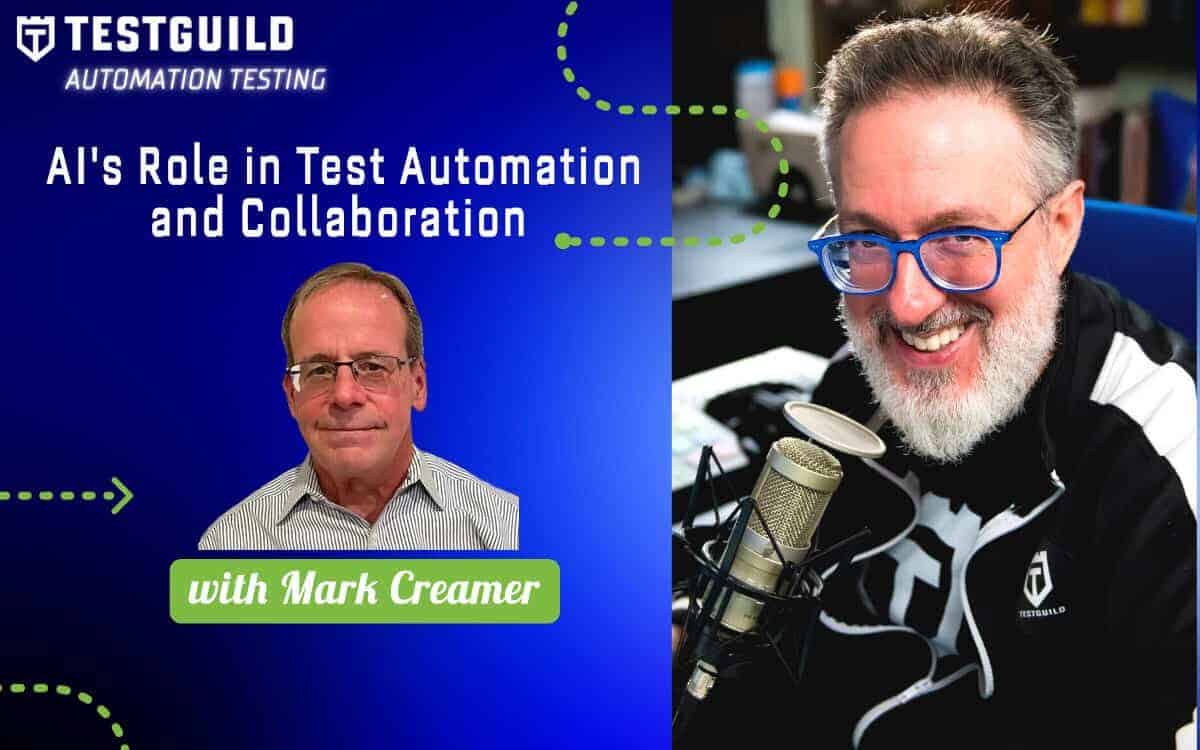About This Episode:
Today's special episode, “Robocon Recapp,” is about the insights and highlights from Robocon 2024. We are privileged to have Tatu Aalto, a renowned maintainer of the browser library; Frank Van der Kuur, a distinguished Robot Framework trainer from BQA; and Mark Moberts, a well-known figure in the Robot Framework community, with us.
In this episode, our guests will explore the enriching experiences of the conference—from the unveiling of the Market Square to the engaging sessions that sparked valuable discussions. We will explore the myriad contributions beyond programming, including documentation, testing, and being an active voice in the community through forums like the RobotFramework Slack channel.
Throughout the Robocon, the spirit of collaboration and knowledge exchange was not just evident. Still, it was the driving force – whether it was addressing pitfalls in the framework, swapping tips on finding the right testing library, or even discussing Frank's and Tatu's interactive sessions that went beyond expectations with engaging questions and the impact they left on the audience.
Get ready to be immersed in a conversation that not only recaps the energy and learning from Robocon but also showcases how the Robot Framework community is driving the future of test automation. So plug in as we dive into everything Robot Framework with insights from the experts at the forefront of the automation world. Listen up!
About Tatu Aalto
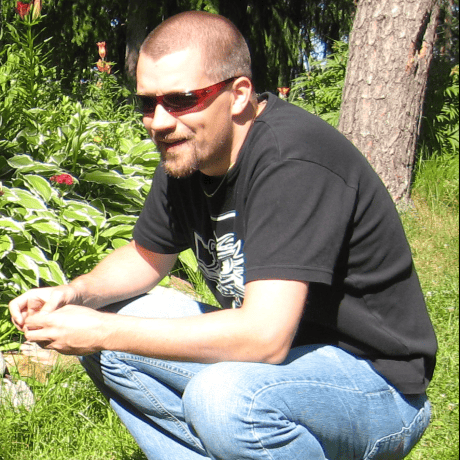
Tatu Aalto works at OP as a Senior Specialist, Test Automation in a team which enables software teams to develop products faster. He has almost 15 years’ experience with Robot Framework and more than 20 years’ experience in testing at general. Tatu maintains several libraries or tools in the Robot Framework ecosystem, example AssertionEngine and is one of the core team member in the Browser library.
Tatu Aalto,aalto.tatu@gmail.com
Connect with Tatu Aalto
-
- LinkedIn: www.tatu-aalto
- Twitter: www.AaltoTatu
- Github: www.aaltat
About Mark Moberts

Mark is Dev Test Expert at Sogeti Netherlands and a self pronounced Robot Framework Fanboy who has been working with RF since 2019. Robocon 2024 was his first experience as an attendee in Helsinki and presenter in the online conference.
Mark Moberts,markmoberts@gmail.com
Connect with Mark Moberts
-
- LinkedIn: www.markmoberts
About Frank Van der Kuur

Frank has been a testconsultant for almost a decade and and during that period he has helpt companies to get a grip on the quality of there products. By combining and aligning both process and technique he strives to make get the most out of the effort that people put into there quality activities.
Next to being a hands-on consultant, he loves to educate people in the wonders of the testing-world. Whether it's a test automation tool, something about the testing process or just on-the-job coaching, he really gets a kick out off helping his quality colleagues getting better in what they do.
Frank Van der Kuur , frank.vanderkuur@bqa.nl
Connect with Frank Van der Kuur
-
- LinkedIn: www.frankvanderkuur
- Github: www.frankvanderkuur
Rate and Review TestGuild
Thanks again for listening to the show. If it has helped you in any way, shape, or form, please share it using the social media buttons you see on the page. Additionally, reviews for the podcast on iTunes are extremely helpful and greatly appreciated! They do matter in the rankings of the show and I read each and every one of them.
[00:00:04] Get ready to discover the most actionable end-to-end automation advice from some of the smartest testers on the planet. Hey, I'm Joe Colantonio, host of the Test Guild Automation Podcast, and my goal is to help you succeed with creating automation awesomeness.
[00:00:25] Hey, it's Joe, and welcome to another episode of The Test Guild Automation podcast. Today, we'll be talking with a bunch of folks from RoboCon, so we're going to talk to Tatu, Mark, and Frank all about some key learnings from the RoboCon 2024 that took place last month. So during the online in-person edition in Helsinki, participants were treated to a bunch of different talks, tutorials, workshops, and community days. And so we're going to dive into key learnings, what it was like to be a participant, what it was like to be a speaker, all kinds of things, and why you definitely need to join next year and what you might have missed out on at RoboCon. And also, you wanna learn some key insights and lessons learned from the conference, maybe discover some insights around Robot Framework and how it can help you with your day-to-day Robot Framework automation effort. You don't miss this episode. Check it out.
[00:01:12] Joe Colantonio Hey, guys, welcome to The Guild.
[00:01:16] Mark Moberts Hi. Good afternoon.
[00:01:18] Speaker 3 Hi, Joe.
[00:01:18] Tatu Aalto Hello.
[00:01:19] Joe Colantonio Awesome. Great to have you all. I thought we'd go around the room for us and just have you all introduce yourselves. So based on how I see them on my screen. Mark, let's start with you.
[00:01:27] Mark Moberts Sure. Yeah. I'm Mark, I'm from the Netherlands. I've been working in test automation for the past five years and working with Robot Framework all that time. I do call myself sometimes a Robot Framework fanboy, so.
[00:01:41] Joe Colantonio Good to know, Tatu.
[00:01:42] Tatu Aalto Hi, I'm Tatu, I'm from Finland, I work for OP, it is a bank in Finland, and I also do a few stuff for the community, for example, maintaining the browser library.
[00:01:54] Joe Colantonio Awesome. And, Frank, welcome to the Guild.
[00:01:56] Frank Van der Kuur Yeah. Hi. I'm from Holland as well, the same as Mark. I work for the Dutch consultancy company BQA, and I thought about this a while back. I think I've been using the Robot Framework since version 2.7 or 2.8, so I guess I'm a long-time user and also one of the Robot Framework trainers here in Holland.
[00:02:18] Joe Colantonio Awesome. There are a lot of frameworks out there and I'm already off-script, but I'm just curious to know you all seem to be very active, very into Robot Frameworks. And Mark even said that you're a fanboy. So I thought like we start off with why Robot Framework of all the types of options out there, why are you a fanboy of the Robot Framework?
[00:02:37] Mark Moberts The first reason for me is that I always worked a lot with Python. And of course, Robot Framework is built in Python and it's fully integratable with Python, so that makes it very easy for me to extend it. And the second reason is readability. I've worked with some other frameworks as well, some other testing tools, and Robot Framework is just the most readable one that I worked with. And that's easy for me, that's easy for a lot of my colleagues and for a lot of people.
[00:03:05] Joe Colantonio Great. How about you, Tatu?
[00:03:07] Tatu Aalto I like the features. There's lots of stuff that I can do with the framework. I can go deeply in the Python world. I can stick in the Robot Framework plan, and I can do a lot of stuff before and after the test execution, which I can find many of the features in some testing frameworks, but I cannot find everything in one other testing framework in outside of the Robot Framework.
[00:03:30] Joe Colantonio Great. And Frank?
[00:03:30] Frank Van der Kuur What I'm thinking, if you're looking at test automation frameworks, is that the Robot Framework is, I think, by far the easiest framework to learn when you also want to do a lot of different stuff. So it's not only browser testing, it's also API, mobile devices, and all other kinds of stuff. And that combined with the easy-to-read and the easy to use features of Robot Framework, I think that makes it stand out a lot.
[00:03:58] Joe Colantonio Love it. It's a tool that I took a lot of people. It's been around for a bit, and it seems like you could do everything. Every time I go to one of these events myself hosting it, I'm like, wow, I didn't know it could do that. I know Mark had a session on like men in the middle attack and all kinds of cool things. So, Frank, I think your session was on common pitfalls of Robot Framework. So you say it's easy to start with, but it's also to me so expansive and that's good and bad, like the good is that you could do anything, the bad is you could do anything. So like what lesson to be learned and what do you think like, it's so flexible. What do you think based on pitfalls that people could run into with the framework?
[00:04:37] Frank Van der Kuur Well, you're right. We had to talk about it. And I think there quite a few other talks about the do's and don'ts of when using Robot Framework. I think the most important thing, if you start with the Robot Framework, just give it a thought before you go into a deep dive and also try to find some people around you that actually work with the framework before because you're completely right, you can do a lot and you can do a lot of things not in the most or best way. So yeah, get into contact with somebody who work with Robot Framework before that will definitely help you in setting it up in the correct way. Yeah.
[00:05:18] Joe Colantonio Tatu, you've worked on different plugins I think for a Robot Framework because anything you see that people aren't taking advantage of or maybe coming pitfalls that they may run into.
[00:05:29] Tatu Aalto Well, I think many people do the same mistake that I also did that they want to put too much logic or too much stuff in the Robot Framework land and somehow they are afraid to step more into Python land and maybe concentrate their keywords and logic outside of the Robot Framework test data.
[00:05:49] Joe Colantonio Do you find that a lot of people may create a library without known that there's already an existing library out there and you're like, oh my gosh! We already have this, how come people don't know about it?
[00:06:00] Tatu Aalto Well, yes, people do create lots of new libraries. I think there are a lot of libraries that we don't see which are inside of the company or inside of the organizations. They do the thing which is not easily possible with the current library they may extend it, we do it also a lot. And or maybe just the old one is so it's not anymore maintain and you cannot reach the maintainers like there are a bunch of different versions for the excel library. And they do a little bit different things. But because not all the excel libraries you need to maintain, you need the new one to get the new stuff in.
[00:06:37] Joe Colantonio Nice. So I guess around that same thing, I learned what I learned at the event. I probably got it wrong to the market place or Market Square, where people can go to find places that I don't know, can anyone speak to that? Well, that might help people.
[00:06:50] Tatu Aalto It's a market square. It's a place. It's actually also a place in Helsinki. But it's the market square is where we try to collect libraries and order things around the Robot Framework community, which are not published by the foundation.
[00:07:08] Mark Moberts One nice addition is that lately, Market Square acquired the awesome Robot Framework repository, which is like a collection of several libraries and all of it in one page, and you can easily find new libraries, new tools, whatever you want, which is already there, which is already existing. So you don't necessarily have to create a new one every time. And it's also a new addition to Market Square. So that's nice. It's now going to be maintained by the community.
[00:07:38] Frank Van der Kuur I think the market square, one of the most positive things of that, being that a lot of libraries are in the same place. Normally spoken, we have a big community at Robot Framework, and you got a lot of people working on a lot of different libraries. But like you said, Joe, it's not that you can quite easily find all those libraries. You really need to know what you're looking for. And of course, on the Robot Framework website, we already have the resource page added the resources where you can find quite a few libraries, but you can't find them all. And the market square is really reaching out to the community and saying, well, please place your library here so everybody can find it. But another thing that I think is quite good is that it helps ensure that if one of the maintainers or creators is going about and do another thing, that the community can still work on the library itself because we have a lot of Robot Framework libraries, but we also have a quite a lot of unmaintained libraries. And if the original creator is going on a really long holiday or he switches jobs or whatever, that library is just it isn't maintained anymore. But it's a good starting point for new maintainers. And I think the market square is really helping out there.
[00:08:58] Joe Colantonio All right, so let's continue that train of thought. I know you already did a session on contributing to Robot Framework. So if someone did find a plug in that maybe not be abandoned, but maybe it's not being updated. How hard is it to start contributing? A lot of times people like a lot, I'm not a programming genius. I can't do this. Are there other different ways you can contribute? You have to be a Python master. Like how does that work?
[00:09:21] Frank Van der Kuur I think you can contribute in quite a few different ways. Of course, the number one approach or the most common approach is, well, I'm going to work on this library. And for that it is good if you know a bit of Python. Then again, Python isn't the hardest programming language in the world, but also a lot of maintainers love it when you help them just testing the stuff out, writing some documentation using it is quite possibly the best way in helping out, even if it was just. If you're creating a library, you put in quite a bit of effort and then seeing other people using it that really helps to keep the drive going to create it and maintain it and add new features. There are a lot of different ways to help.
[00:10:09] Mark Moberts By using those libraries, you might need some new features, you might want some extra functionality, or you might encounter some bugs. And instead of a pull request creating an issue with a pull request feature or a bug that you found can also help in maintaining the library, and then someone else might be able to pick it up who wants to contribute but doesn't know how to start and does know Python. And even without knowing Python yourself, you could contribute in that way as well.
[00:10:37] Tatu Aalto And also if you, because you are a tester and you're most likely a Robot Framework user, you could also look to tests that the library has, and you could see that most likely that library doesn't cover everything. I know I'm guilty. We don't test all possible things also in the browser library. Enhancing our test coverage or features in that way is also helpful because when I'm coding something, I'm most likely going to miss something. And with our projects, I don't really have second pair of eyes, for those things we trust each other. Even though I have partners to run the project, we don't usually do reviews. We trust the one listed in good enough job. So you're looking also, those type of things can be useful and it's also contributing.
[00:11:27] Frank Van der Kuur Yeah, and a good thing about those tests. I don't know how it is with you guys, but those tests are, for me also a way of documenting. Because if I use a library and I want to do something that I don't really know how to do, then I read the keyword documentation. Sometimes I understand it, sometimes I still don't. But if you then dive into the tests of those libraries acquired quite often, you just find the exact same thing you're looking for with a real live example in it. Because while it is testing that part of the library.
[00:11:57] Tatu Aalto That is true. I can't remember many times somebody asks something somewhere in Slack or in the forum, and then I don't remember how that particular keyword works. I go look the .... And then I point him the link. That's here it is. Here is how you use your keyword.
[00:12:14] Joe Colantonio Awesome. And that's another thing I always learn from these events, especially from this year, is the community is so welcoming. So if someone did want to contribute, I know that that's one thing I always look for when I'm looking for a tool is how active is the community, how open are they? And it seems this is a big community. It's been around for a while and you're all very welcoming. So that's something that if someone is worried like, oh, I'm not going to get the support or no one's going to help out or I'll be open to it. I would just say something I've learned is it's a very open community that is encouraging and looking for contributors. So I think that's a good place to start for sure. So, Mark, another thing, once again, I always like I mentioned already is I always find like, wow, I didn't know Robot Framework can do that. And I think maybe because this people don't really know what Robot Framework is to me, it's almost like a container that sits above different plugins and different functionalities, and some of those areas of security, there was a few sessions on security that I was really happy to see, and yours, I think, was on something to do with man in the middle attack. So were you using Robot Framework to help with security testing, or was this just such an in general on how to do a man in the middle attack without?
[00:13:22] Mark Moberts No, it was more of how you can use that technique to enhance your testing. So in cases where you have issues with certain services that are up or down or whatever, this technique can also help you to improve your testing, to make sure that you can test scenarios that you normally might not be able to test. So it's not necessarily attacking. It's manipulating your data in the sense that it enhances your testing rather than trying to break security.
[00:13:52] Joe Colantonio Gotchu. Do you know, are there any libraries within Robot Framework that do address security specifically?
[00:13:57] Mark Moberts There was. I don't know for sure if it's called a library, but there was a talk by someone in Helsinki I forgot her name, at the moment. I was talking about fuzzing and how you can use Robot Framework combined with fuzzing to check the vulnerabilities in API testing. So that's one of the examples that I know.
[00:14:13] Joe Colantonio Absolutely. So I guess let's just address just for people that may be unfamiliar with Robot Framework, this probably would have been a good question asked to set the stage, to talk about security. What is this a security tool like? Tatu, what is Robot Framework to like if someone's like has no idea, like why are they talking about browser and API and security? I don't understand what we're doing here.
[00:14:32] Tatu Aalto It is kind of like what the word says. It is a framework that allows you to do many things and testing Android or mobile devices, or in browsers or in windows desktop applications. You just need to find the correct library to do your thing, and usually, it's not one little thing we usually have when you are talking with the mobile device, you also have a backend where you want to connect and you have a maybe you want to connect your database, or you can do many stuff or many different kind of things in one single framework. So you can plug and play kind of.
[00:15:05] Joe Colantonio Yeah, plug and play. Okay. Cool. So Frank, when you talk to teams like how do you explain it to people sometimes get confused fo what exactly the power that's available but not know.
[00:15:16] Frank Van der Kuur Well, when I am giving Robot Framework training, basic foundation training, then there are two things I always try to explain. First, I always get our good old test pyramid out of the closet and I say, well, every test automation engineer needs to know the test automation pyramid. And in most cases, if you look at the Robot Framework, when we do test automation with the Robot Framework, we do the top levels of the test automation pyramid. It isn't really useful for unit testing, but it is very useful for the functional testing. That's the first thing I always try to explain. So use it for the top-level tests. Then, the other thing I always try to explain is that you got your testing script, and underneath that you got basically that's what the Robot Framework does. So it interprets your test script and then the Robot Framework does its magic. And it can do so because, underneath the Robot Framework, you got all those different libraries that doing browsers, mobile devices, desktop applications, databases, and embedded systems. We've learned during RoboCon. And those libraries really create a pass-through between the Robot Framework itself and the system under test that you're testing. Those, I think, are the two basic things you need to know about the Robot Framework that it is a framework that interprets your test script, then uses a library that really communicates with your system under test. And basically, most libraries focus on the top side, the test automation pyramid.
[00:16:49] Joe Colantonio I 100% agree. So speaking about, Tatu, a lot of people, when they think of web browsers, they think of just Selenium. And because you said this framework, there are different types of ways you're going to meet. I think the browser library addresses Playwright, maybe will plug for what is the browser library people like Oh, It's just Selenium-based.
[00:17:09] Tatu Aalto We use Microsoft Playwright underneath it. Basically, we had argument about the name and people didn't want to go with the Playwright library because they thought that it won't sell enough. But now, I'm seeing the drawbacks of the name because bunch of questions of different kind of process automation tends to end. So I applied it. So I think we have gone with the Playwright library name.
[00:17:35] Joe Colantonio For sure.
[00:17:35] Frank Van der Kuur But it's basically you can see that it does the same thing as the Selenium library for Selenium. It's kind of concentrates or extracts to Playwright that's through a higher level things as a keyword in the Robot Framework like. But instead of using Selenium, you use Playwright underneath it. And that's the basic idea.
[00:17:55] Joe Colantonio Nice. One thing that I learned at the event, not one thing that came up, was for some reason people thought because you were demonstrating the browser library, I think we were talking about how to port over or we were project or people like, oh, it's no longer be support for Selenium. That is not the case. So I learned. So any thoughts on that? Any confusion that came up during the event that you like hold up. We're not saying and we're going to Playwright. Just another option.
[00:18:19] Tatu Aalto Selenium Library and browser are kind of like friendly rivals and I think none of them are going away because there's a lot of community all using both of these libraries, and it's good to compete because it makes the both libraries better and they are here for to stay. It's just a different tooling for different kinds of problem, and it depends on your context and your use cases which one you choose. You can make bad things in both libraries and good things also.
[00:18:52] Joe Colantonio You also were all speakers, but I'm just curious to know how your experience is maybe a participant in other sessions, what that felt like or what you may have learned, or any key takeaways. So Mark, any thoughts on were you able to catch any other sessions? I know you mentioned the fuzzing one with the API that you learned something about, but any other things that stood out for you as an attendee?
[00:19:15] Mark Moberts First of all, I was a participant in Helsinki, so I was able to just look and visit and listen to all the talks. And one of the things that I saw a lot is how strong the community is. So both in the talks and also in the hallway talks and talking to people in Helsinki. And one of the other things that came up is how everyone is busy with styling, dealing with project architecture and all of those things. That's something that came up a lot and also inspired me to start looking again at my own frameworks as well. And I think that what I picked up most is just a lot of inspiration from all the different talks. Some talks were totally not relevant for me, but I still had some points that could inspire me like Stavroula, she had some talk about microwaving robots was the name of it. It was about some embedded system in Nokia, which is totally irrelevant for me, but she had some very interesting approaches that I can relate in my current work, so I could learn from that as well. Even though we don't work on the same system, we don't work in the same environment. None of it. So I think that's most of it. And mostly inspiration.
[00:20:28] Joe Colantonio Absolutely. And Mark, I think you were also the first time speaking here. So was this your first time speaker ever, a first time speaking at this event? And any key takeaways or recommendations for people that want to be a speaker?
[00:20:40] Mark Moberts I was first time speaking for RoboCon, I spoke once before at a conference which was organized by my company, so that's pretty easy to get in. What I would say is, if you have an idea, just pitch it. I pitched it and I was like, I'm probably not going to make it. And I was surprised I was and it was a lot of fun. I'm very happy I did. I won't say scary, but it was exciting and I'm very happy I did it.
[00:21:05] Joe Colantonio Awesome. Frank, any key takeaways that you got out of the events.
[00:21:09] Frank Van der Kuur Looking at the conference itself as a participant, there are two things that absolutely stand out for me. That's the first one being is that there is just an enormous amount of different talk. It covers all kinds of topics, and no matter what your expectations are beforehand, you will take a lot home with you. And I'm really looking forward to the recordings of all the talks. I have a lot of catching up to do. And the second thing that stands out for me is that maybe even more important than the actual talks are all the hallway talks. It's so easy to talk to the speakers, to other participants, to the organizers of the conference, and that adds a lot to the experience of the conference. All in all, I think I've spent 6 or 7 days on the conference and normally spoken after 1 or 2 days, I think, well, I've talked to everybody now after 6 or 7 days, I'm still oh, I need to speak to him and I need to speak to him or her. So yeah.
[00:22:17] Joe Colantonio Awesome. How about you, Tatu?
[00:22:18] Tatu Aalto I'm going to try out, there was a lot of mentioning or talks about the recording, how the day one changed, how the log file looks so that it's better for the, I think less auditing for some supervisors. One of the technical, there's all the technical details of I think I'm going to try something similar. And the other one was the export as the reporting reports to some extent and services. And I think I will also play with that kind of idea. I have no idea what I will choose, but I think we need to do something similar on the topic. And I also agree that talking to people is the best part of conference. I also like the open day before the conference where there's basically open space. People can do whatever they want. And that's just a wonderful thing to meet new people on, talk, discuss with people, and do something together also.
[00:23:17] Joe Colantonio Absolutely. And that's another thing I always learn when I host these events is it's not just the on-site for community and interactions. It's a really good community online during this event as well, in Gather Town, where it kind of simulates the hallway track-type conversations you have. By joining the online, you don't miss out necessarily on the in person, even though probably in person is a little bit better. But they do give you an opportunity to have that hallway track feel and a really unique way. I think you all do it really well there at RoboCon in Gather Town, so that's something I really enjoyed as well. I always ask speakers. I'm just curious to know you gave a session with any questions I came up to made you think like, huh! I didn't anticipate that question, so I kind of learned from it. Or maybe next time you give it, you would tweak it because not only you're teaching, but you will learning because someone gave you some feedback or some sort of nugget that you took away even though you were speaking. I don't know if anyone had those kind of Aha moments or questions that kind of caught your attention.
[00:24:18] Tatu Aalto Yes, I was talking about testing in production, and then somebody asked me a question that what if you cannot test in production? What do you do then and then what? And I haven't thought about that scenario beforehand. And that is also possible. And that made me think that how you could do that if you cannot run your test in production, what else you should then do? And now I'm in a place where I cannot run my test in production. I have to do something else.
[00:24:48] Joe Colantonio Cool. Frank and Mark, any thoughts on this?
[00:24:52] Frank Van der Kuur Well, one of the things I've come back with is that more than one people were asking me like, well, Frank, you had a nice talk about how you can go about setting up your Robot Framework, but can we find it somewhere? Because it's a talk and you gave quite a high overview about what you should do and what you shouldn't but do you have something like a book or a video or something explaining it in more detail? And well, that was something I took with me. Yeah.
[00:25:23] Joe Colantonio Great advice, good feedback. Mark, anything like, were you surprised how many people knew or didn't know man in the middle attack? You said you were surprised your topic was chosen, but I think it's a great topic. Any feedback on your session like, wow, thank you for this. I didn't know this was possible or I didn't know this is something I should worry about.
[00:25:41] Mark Moberts I got a lot of reactions from a lot of people, and some of them are still in contact with me about how they can also contribute and ideas that they have, like, hey, I want to do this with your library. Can we add this? And I'm like, okay, sure, make a PR and go ahead. It does build it. And so I think that's really nice. And that's also something that came forward from the conference, of course, having a talk about it makes sure that people know about it. And you can also see a spike in the downloads of the library during the conference. And I also learned a lot from the discussions with people. Also in the days after the conference, not just in the 10-20 minutes after the talk, but also in the days after.
[00:26:20] Joe Colantonio Right. And just so people know, if for some reason they had a ticket and they missed the event, the recordings are available to people that have tickets and I think recordings be available later to others later on. But that's one of the benefits of joining the event, is that you actually get access to all the recordings. So it's awesome. So if you miss RoboCon 2024, you don't want to miss 2025. And just stay tuned for more information on that, because I know they run it every year, and I hope that you all join us there as well. Okay guys, before we go, is there one piece of actionable advice you can give to someone to help them with their Robot Framework automation efforts, and what's the best way to find or contact you? Once again, I'll start with Mark and we'll end with Frank. Any thoughts, Mark?
[00:27:00] Mark Moberts Yeah, I would say that one of the best things you can do is to just join the Slack. It's the one spot where I think everyone from all of us and the their foundation members and everyone who's part of the Robot Framework community, can come and talk about Robot Framework and ask questions. I would say that that's the first piece of advice.
[00:27:21] Joe Colantonio Great advice Mark. Best way to contact you?
[00:27:24] Mark Moberts Through the Slack.
[00:27:25] Joe Colantonio Okay, perfect. Slack is the way to go. Yeah, it's a huge community and we'll have a link to that in the show notes for sure.
[00:27:31] Joe Colantonio Tatu?
[00:27:31] Tatu Aalto I was going to say same as Mark. Just joined the Slack and ask. There are no wrong questions.
[00:27:39] Joe Colantonio Awesome. No Playwright suggestions on the browser?
[00:27:42] Tatu Aalto I'm in the Slack. See me in the channel.
[00:27:46] Joe Colantonio Yeah. Awesome. Frank?
[00:27:48] Frank Van der Kuur I think the Robot Framework Foundation did a really good job in setting up and facilitating the community the past few years. Like I said, I was using the Robot Framework, I think in 2.7 or 2.8. So in that time, the community, it was already there, but it wasn't facilitated in the same way it is now. And when you're getting started with the Robot Framework, start off with the website, the resources out there, the style guide that's new is there, also, the link to the the Slack channel is there. And if you have any questions, just drop a post, be it in Slack or at the forum. Use the community that is set up over the past few years, and there are a lot of people who are willing to help you.
[00:28:35] Joe Colantonio Great advice, Are you in Slack as well. The Slack channel?
[00:28:37] Frank Van der Kuur All. Of course, I am.
[00:28:38] Joe Colantonio Awesome. All right. Thank you so much guys for these really great sessions. And thank you so much for contributing to RoboCop and making it awesome. And everyone should definitely check out Robot Framework and RoboCon 2025 when it comes around. So thank you everyone for joining us and we'll catch you next time.
[00:28:53] Thanks again for your automation awesomeness. The links of everything we value we covered in this episode. Head in over to testguild.com/a490. And if the show has helped you in any way, why not rate it and review it in iTunes? Reviews really help in the rankings of the show and I read each and every one of them. So that's it for this episode of the Test Guild Automation Podcast. I'm Joe, my mission is to help you succeed with creating end-to-end, full-stack automation awesomeness. As always, test everything and keep the good. Cheers.
[00:29:30] Hey, thanks again for listening. If you're not already part of our awesome community of 27,000 of the smartest testers, DevOps, and automation professionals in the world, we'd love to have you join the FAM at Testguild.com and if you're in the DevOps automation software testing space or you're a test tool provider and want to offer real-world value that can improve the skills or solve a problem for the Guild community. I love to hear from you head on over to testguild.info And let's make it happen.
Sign up to receive email updates
Enter your name and email address below and I'll send you periodic updates about the podcast.

